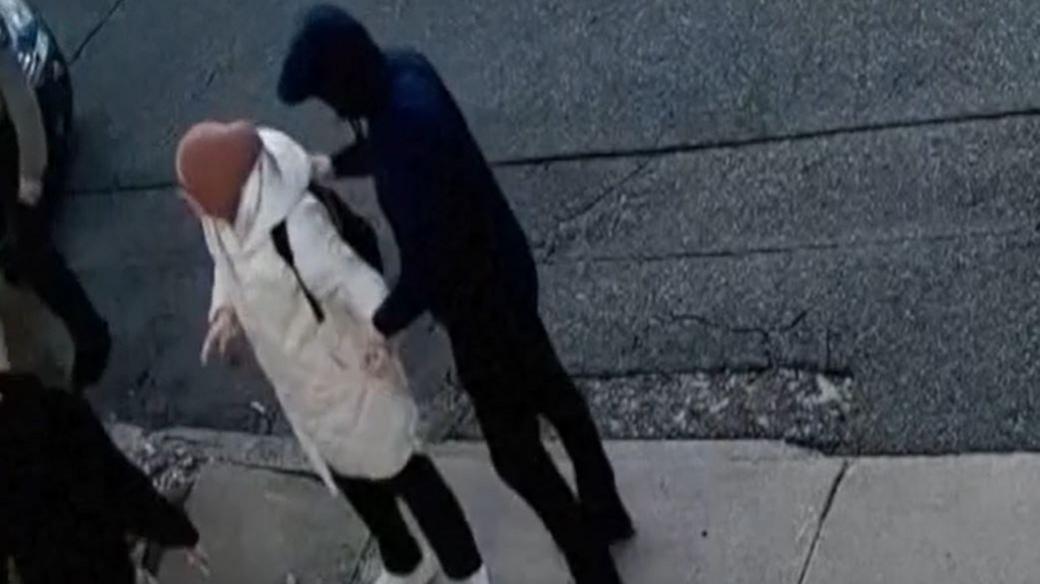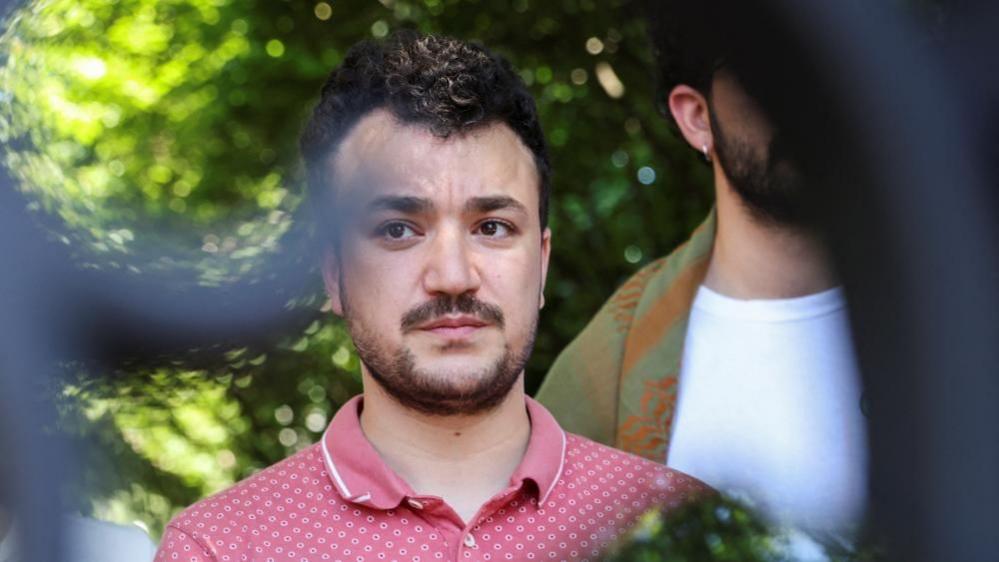Why has Trump revoked hundreds of international student visas?
Watch: Moment Tufts University student is arrested by masked immigration agents
- Published
The Trump administration has revoked visas of hundreds of international students and detained roughly a dozen others on college campuses across the US, often without any warning or recourse for appeals.
Videos of some of the arrests, showing plain-clothes officers handcuff and arrest students near their homes, have gone viral and sent shockwaves through the international student community.
Over 80 universities have reported revoked visas, according to a tracker by Inside Higher Ed, hitting students and faculty from coast-to-coast.
US Secretary of State Marco Rubio confirmed last month that at least 300 visas have been revoked, adding that the department was targeting those who were involved in activities that "run counter" to US national interests.
Many of those targeted have participated in some form of pro-Palestinian activity. In other cases, cancellations appear to be connected to those with some sort of criminal record, or legal infractions like driving over the speed limit, immigration lawyers have said.
Immigration experts say visa-holding students have the same First Amendment right to free speech as US citizens, and historically it has been rare for students to be deported because of acts of political expression. But they are vulnerable to deportation because of the temporary nature of their visa.
Why are student visas being revoked?
Lawyers for some of the students who have filed lawsuits against the federal government say their visas were revoked suddenly, without any warning and without recourse for appeal or corrections.
Rubio has said that student visas are for studying and warned they would be revoked if foreigners were seen as engaging in "destabilizing" acts.
In a transcript released by the US State Department, Rubio said "it might be more" than 300 visas that have been revoked.
"I don't know actually if it's primarily student visas. It's a combination of visas," he told reporters.
Those affected have predominantly been involved in pro-Palestinian protests, he said, but have also included some who have prior criminal charges.
A Turkish citizen and University of Minnesota student was detained in March after his visa was revoked for a prior drunk driving infraction, according to the BBC's media partner CBS News.
Other reports show students have had their visas revoked after they were found to have prior speeding tickets.
Faculty members and rights advocates have expressed concern about students' ability to share their opinions without risking their legal status.
"No president should be allowed to set an ideological litmus test and exclude or remove people from our country who they disagree with," the American Civil Liberties Union (ACLU) said in a statement.
The White House has defended its actions using a provision of a 1952 law that grants the secretary of state broad authority to expel foreigners believed to pose "potentially serious adverse foreign policy consequences" for the US.
Rubio on student activists: US pulled visas from 300 "lunatics"
What universities have been affected?
Inside Higher Ed tracker, external identifies more than 80 colleges and universities where international students and recent graduates have had their legal status changed by the State Department.
It lists major public universities with tens-of-thousands of students like Texas A&M University, University of Oregon, University of Florida and University of Colorado.
It also includes smaller private institutions like Dartmouth College, Harvard University, Yale University, Columbia University and Stanford University.
Federal authorities revoked visas of at least eight students at Arizona State University and at least six people at the University of California Berkeley, according to the Washington Post.
At least 57 visas have been revoked from across the entire University of California system, according to the Wall Street Journal, and seven at Ohio State University.
There are roughly 1.1 million international student visa-holders in the US.
Student detainments and deportations
Multiple students and faculty have been detained, including those on student visas and at least one permanent legal US resident.
Once in custody, they have been sent to detention centres across the US where they await deportation.
Video footage of some of the arrests shows plain-clothes Immigration and Customs Enforcement (ICE) officers approaching confused and frightened students, before they are placed in the back of unmarked cars.
Some of those detained have alleged they were arrested without explanation and say they have committed no crimes.
One of the most high profile cases involves Mahmoud Khalil, a recent Columbia University graduate and legal permanent resident who was arrested in his university-owned home in March.
The other case to capture national attention involves Tufts University student and Turkish national Rumeysa Ozturk.
Footage of Ms Ozturk's detainment shows her shaking in fear as she is encircled by six plain-clothes ICE agents wearing masks who stopped her on the street as she was headed to a Ramadan celebration.
Rasha Alawieh, a Brown University professor and kidney transplant specialist, was deported after arriving at Boston airport.
US officials said they found "photos and videos" on her cell phone that were "sympathetic" to Hezbollah.
At least two students who had their visas revoked have fled to Canada, including Momodou Taal and Ranjani Srinivasan.
Lawsuits challenge the White House's efforts
Several students have sued the government to challenge their visa revocations and detainment amid a bid to delay or block their deportation.
They allege that they have been arrested and detained without cause or explanation, a possible violation of their civil rights.
One example includes Xiaotian Liu, a 26-year-old doctoral student from China who studies at Dartmouth College.
Mr Liu is suing the government along with the American Civil Liberties Union of New Hampshire, alleging that his visa has been revoked "without any notice and sufficient explanation".
Mr Liu has not committed any crimes or participated in any protests, according to the lawsuit.
Related topics
- Published27 March

- Published1 April

